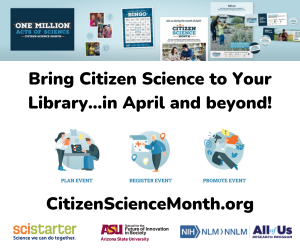All Religions Welcomed at the Library

Imagine these two scenarios:
Situation 1 – A middle aged man comes to the library. He wears a suit, you know him superficially as a local decorated veteran. He brings with him a challenge form. He has clearly read the policy and the book in question, and has marked multiple passages of graphic descriptions of rape, murder, assault, and orgy. All can be confirmed by the text. He requests this book be reconsidered.
Situation 2 – A young man enters the library. You know him by sight, a local student. He wears a typical costume of black. You remember him because you have wondered how he sees the You Tube videos he watches through so much hair in his eyes. He comes to you to ask why certain websites cannot be accessed. He’s vague, referencing a school project and need to do research. After further questioning, you learn he has searched “witchcraft” and the sites are blocked as “occult.”
Do you respond to these two patrons the same? Do you sympathize the same with both? Do you question one more than the other? Take one more seriously? In thinking of your responses, add some more information. Does it shift your perspective to learn in situation 1, the man identifies himself as a Wiccan? That the book he has challenged is The Bible? Or that in situation 2, the young man is a devout Christian and that he is researching Wiccan beliefs for his Sociology class?
Earlier this spring a public library about 100 miles southwest of St. Louis made news with its initial decision to impose computer filters blocking the category “occult.” The result of this filter was that Internet searches on the Wiccan faith were blocked. After discussion and political comment the library’s board agreed to remove the filters and not censor patron searches on spiritual matters.[i]
Several years ago a Wiccan and retired Marine, filled a request in his home town Florida library asking for the reconsideration of a book. He claimed the book in question was filled with graphic violence: rape, murder, incest, cannibalism, etc. The book? The Bible.[ii]
My point here is that these situations are real — these are issues that we should think about. I would like to believe that every public library in the United States would argue vehemently that representations of all religious beliefs are welcome in their institution. But clearly the path that these two real cases went down indicates this is not pro forma.
Earlier this year the University of Missouri released a multiple page document to its faculty listing religious holiday dates on which faculty might want to avoid scheduling exams.[iii] This list included Wiccan and Pagan holidays among other more traditional events and non-western holidays. The response was not favorable. People challenged that all days were some kind of holiday and inferred that some religions should be granted more legitimacy than others. I am dismayed by this reaction.
These two real cases caused me to consider programming and collections in the public library. One role of the public library is to educate, to set an example, and to offer exposure to new concepts and ideas. Do not get me wrong, I am not saying the library should advocate for any position, but should be the location for which information is available and knowledge is shared. For this end, I simply believe everyone should think about what their roles are and the implications of their decisions.
In my home state, a few years ago we had an incident in which local selectmen refused to allow the public library to sponsor a Wiccan program. At that time we discussed if it would be “safe” to make a display of tarot cards in the library. While in the larger population we have a growth of hate crimes and challenges to Mosques.[iv]
If we examine any of these issues in isolation, all motivations and responses get muddied and the interpretations can vary. everything becomes suspect. The veteran had no real intention or desire to remove the Bible from the Library shelves. This was not his point. Likewise, it is not mine either. For both this patron and myself, I believe what we are asking is for people to think. Truly consider what things mean outside of the familiarity of our own beliefs. It is the proverbial request to walk a mile in another’s shoes.
Tags: religion and the library







